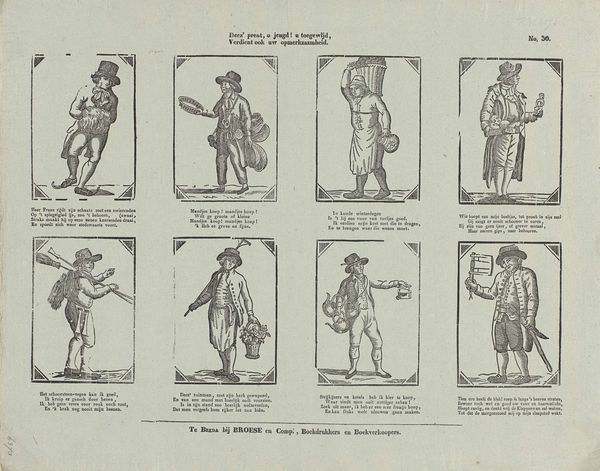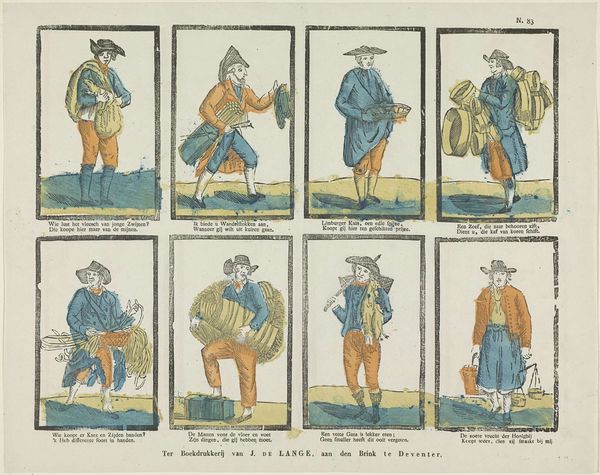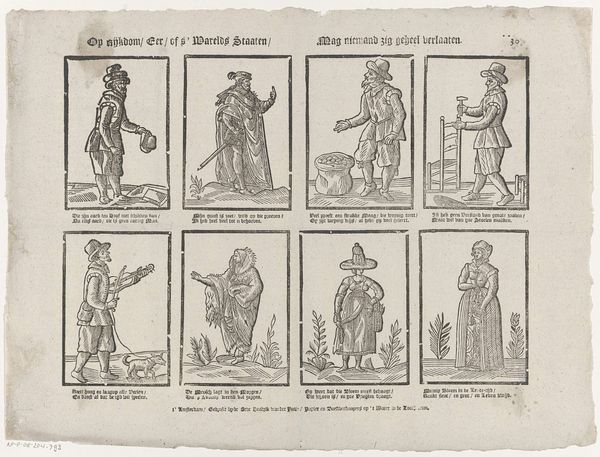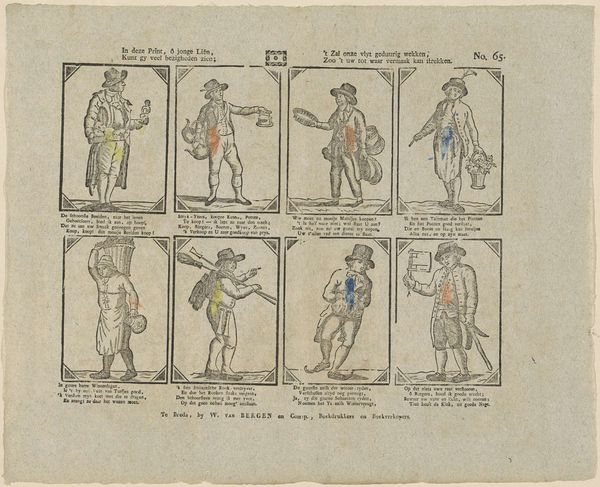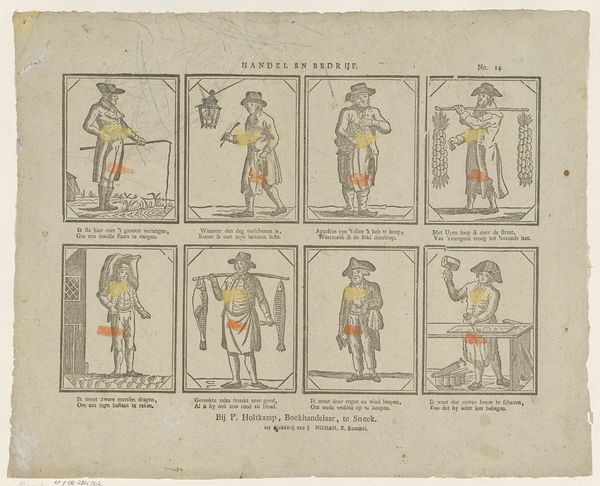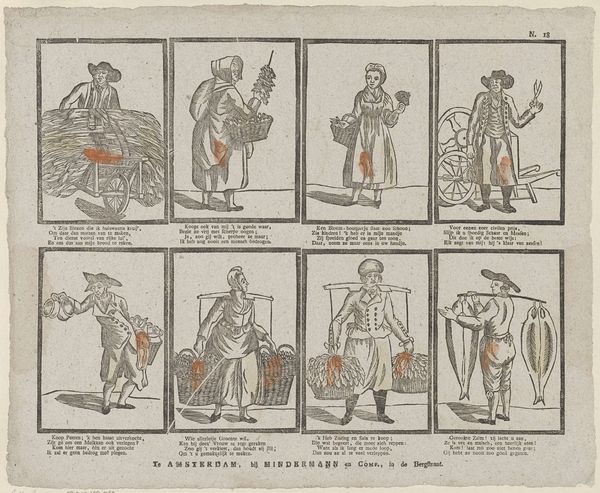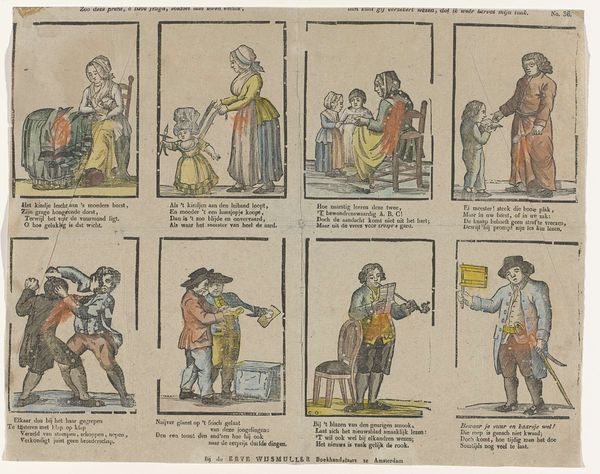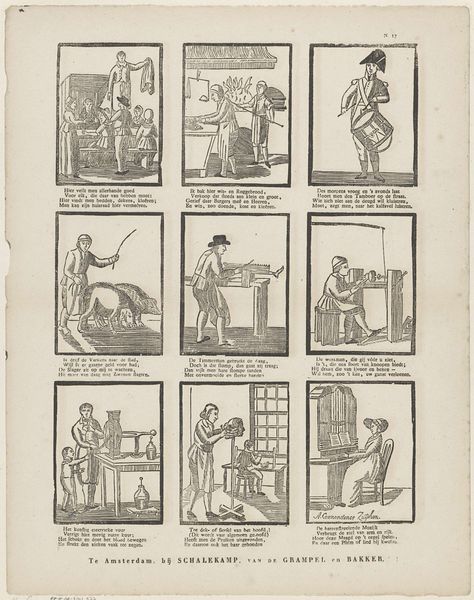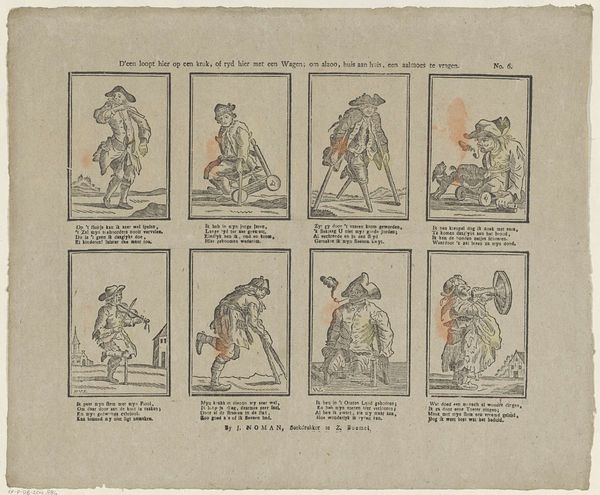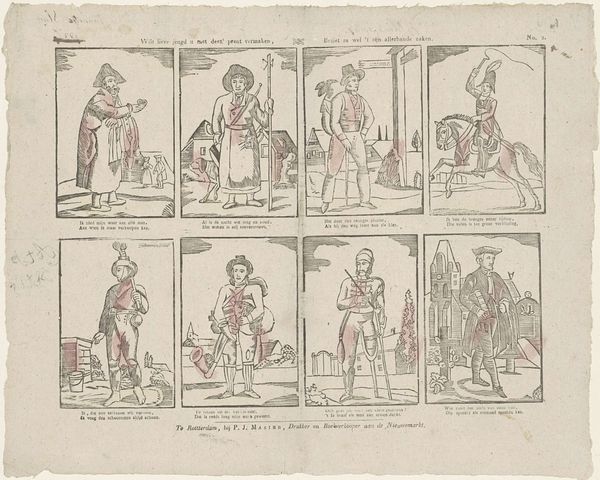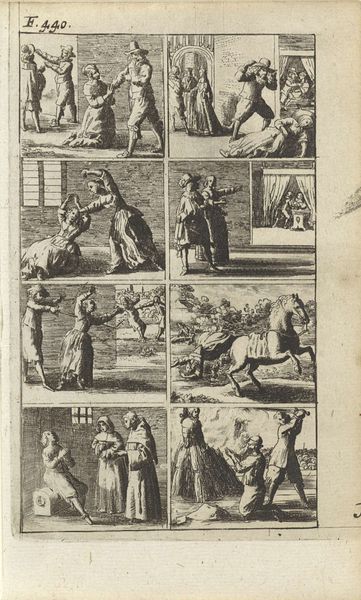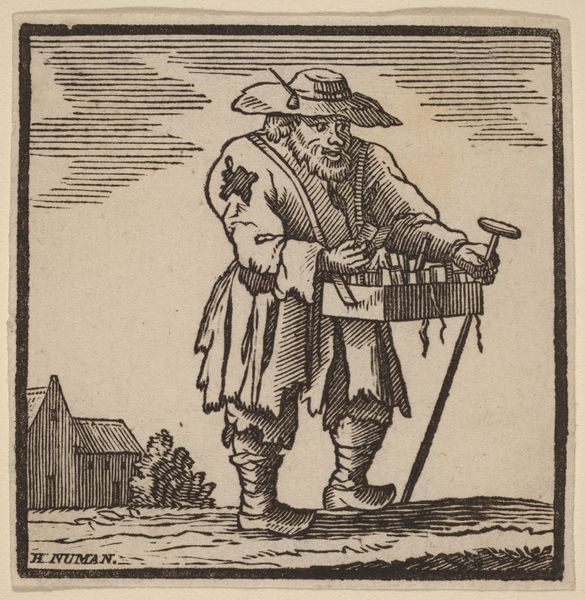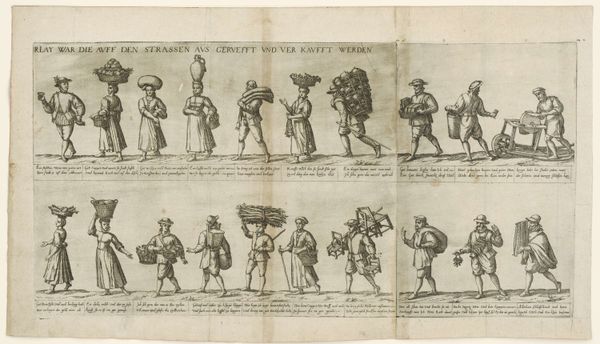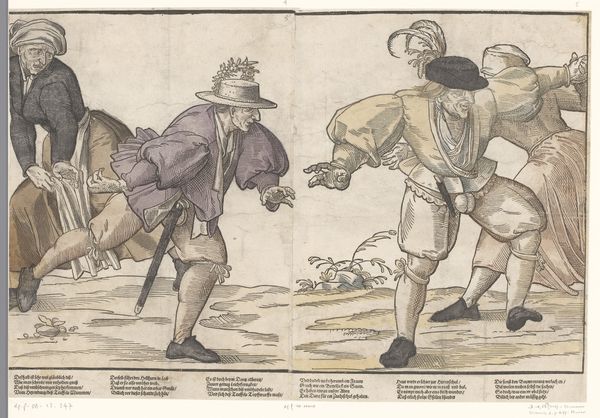
print, engraving
#
portrait
#
16_19th-century
#
dutch-golden-age
# print
#
figuration
#
genre-painting
#
history-painting
#
engraving
Dimensions: height 328 mm, width 401 mm
Copyright: Rijks Museum: Open Domain
Curator: Alexander Cranendoncq's "Beroepen," created between 1806 and 1858, offers a fascinating glimpse into the labor of ordinary lives. This engraving is a small testament to daily work. Editor: My first thought? A melancholic stroll through yesteryear. There's a distinct coolness here. It’s a monochromatic meditation. Curator: Monochromatic for sure, typical of prints like this, relying on line and form. Note how Cranendoncq arranges these figures – each a little tableau of work – in neat little boxes. A knife grinder, a baker, what we might now call ‘essential workers’. Each profession precisely rendered, a kind of visual taxonomy. Editor: I am tickled by that the “Estellisgye,” and their portable containers, stand out the most; perhaps its quaint nature pulls at our emotions now more than it did back then. There is a clear emphasis on vertical lines and angles with this profession; how else might you look at their "pose"? Curator: Semiotically, each posture is communicating a specific role, a specific function within society. Think of the baker holding the loaf—that pose almost screams 'sustenance'! We see societal roles crystallized. Look also at how Cranendoncq has used the orientation of the worker's eyes, either angled upwards or downwards in relation to the profession they fulfill. Editor: Right. The lines guide our attention from one character to the next. Speaking of lines, the texture created in each of these vignettes…there is clear intent to highlight materials in their essence as professions. Do we feel the cobblestone underneath the knife grinder or the soft feather in the chimney sweep's kit? I suppose I want to get close and experience. Curator: That textural effect achieves another important level as the individual figures stand in relationship to each other; and the composition as a whole. There is, ultimately, a great flattening of the human experience. In a way, that the visual leveling may lead to an undervaluing of the people presented. Editor: "Beroepen"— it's more than just trades; it's a silent observation, wouldn't you say? A whisper from the past, carefully captured and composed for our present pondering. Curator: I completely agree. This piece serves as a poignant reminder that work, in all its forms, is central to understanding the human condition across eras.
Comments
No comments
Be the first to comment and join the conversation on the ultimate creative platform.
